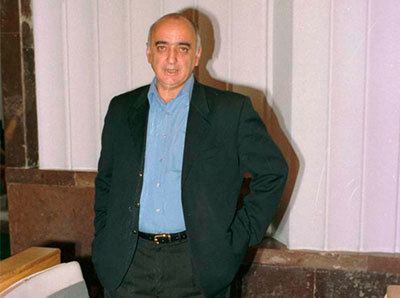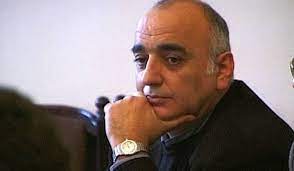YEREVAN (RFE/RL) — Vano Siradeghyan, a once powerful Armenian politician and former government member, died at the age of 74 on October 15, more than two decades after fleeing the country to avoid prosecution on murder charges denied by him.
Siradeghyan’s death was announced by his wife and son in a short statement issued over the weekend. They did not specify its cause, reveal his last place of residence or say whether they want to bury him in Armenia.
A former novelist, Siradeghyan was one of the leaders of a popular movement for Armenia’s unification with Nagorno-Karabakh that erupted in 1988 and toppled the then Soviet republic’s last Communist government in 1990. He became one of the newly independent country’s most powerful men when serving as interior minister in the administration of its first President Levon Ter-Petrosian from 1992-1996.
Both during and after his tenure, Ter-Petrosian’s political opponents and some media outlets accused Siradeghyan of abusing his powers to enrich himself and his family. He denied the accusations.
One year after Ter-Petrosian resigned in 1998, Siradeghyan was charged with ordering a string of contract killings. State prosecutors claimed in particular that he set up in the early 1990s a death squad to eliminate and terrorize opponents of the Ter-Petrosian administration.
In July 2000, two members of the alleged gang were sentenced to death while seven others got jail terms ranging from 4 to 11 years. One month later, eleven former officers of Armenian interior troops were given lengthy sentences after a Yerevan court convicted them of murdering two men in 1995.










